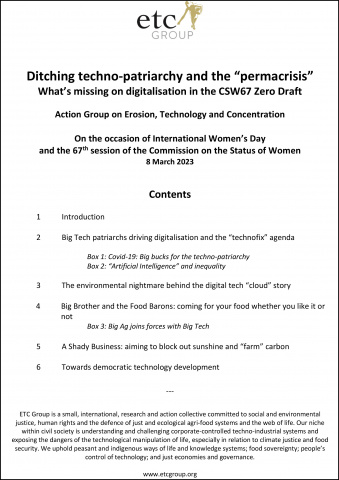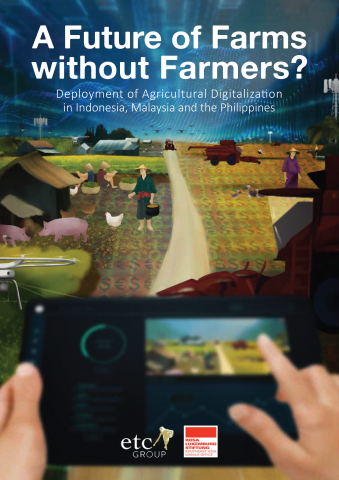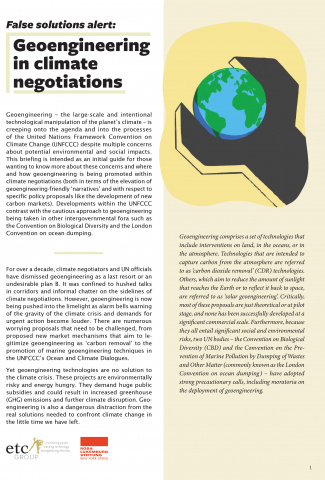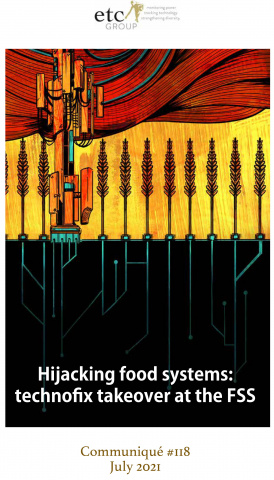As CSW67 turns its attention to digitalisation, like the rest of the United Nations, this Briefing zooms in on less-discussed aspects of the ongoing digitalisation tsunami, which is likely to usher in a new worldwide wave of gender-based impacts, as the techno-patriarchy, along with Big Ag and other industries, relentlessly dreams up new ways of turning a profit by digitalising as many sectors as possible (often in extraordinarily far-fetched and unnecessary ways).
Reports
The ongoing digitalisation tsunami is likely to usher in a new worldwide wave of gender-based impacts.
Deployment of Agricultural Digitalization in Indonesia, Malaysia and the Philippines
Digital agriculture is the application of digital tools and business models integrated with digital technologies across the agricultural-food (agri-food) chain.
Geoengineering comprises a set of technologies that include interventions on land, in the oceans, or in the atmosphere.
Geoengineering – the large-scale and intentional technological manipulation of the planet’s climate – is creeping onto the agenda and into the processes of the United Nations Framework Convention on Climate Change (UNFCCC) despite multiple concerns about potential environmental and social impacts.
The wrong kind of Food Systems Summit
Our latest communiqué looks at how the Food Systems Summit (FSS) planned for the fall of 2021 is not about changing food systems, but about spinning a story that props up and expands the industrial food chain at the expense of other food systems. The FSS’s proponents argue that the “food system” is broken, that population growth and climate change mean that we will not be able to feed everyone, and that only new technological developments can save us.
- 1 of 7
- ›




